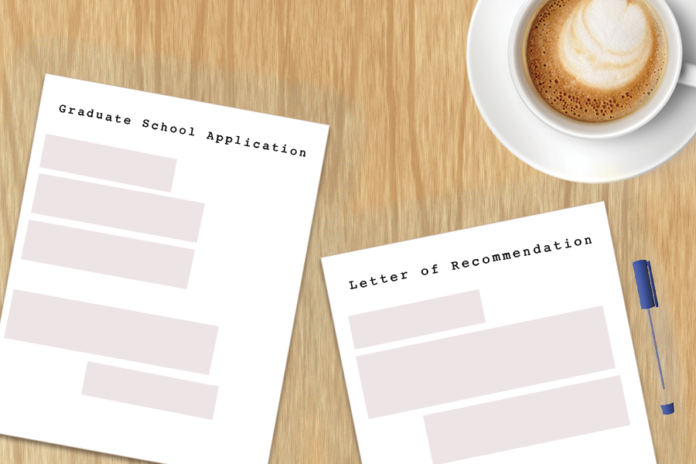Here are my tips on how to maximize your chances of getting a great letter
By JENA TUFAIL — jjtufail@ucdavis.edu
Application season is intense, and whether you are graduating this academic year or in a few, the pressure to get a letter of recommendation can be stressful. If you need a recommendation for graduate school, law school, work or an academic program, it is hard to know when you have developed a relationship suitable enough with a professor, or another individual in a professional setting, who can write you one. Here are my tips for increasing your chances of getting a letter of recommendation.
It’s a good idea to set up some time with your chosen recommender. Depending on if this is an employer or a professor, this process might vary. Most applications would like an academic letter of recommendation, so I will focus on that.
You can choose to visit a professor in their office hours. Not only can you ask for advice pertaining to the course they are teaching, but most professors will be happy to discuss your professional goals and give you any professional advice if you ask. Professors have vast experience in their fields and are usually happy to help students discover possible careers after undergrad.
While it’s important for the professor to know you outside of the classroom, as there is more time to discuss other topics, what you do in class also matters. A solid work ethic is a must: preparing for class, asking for extra help and even asking for opportunities they know about in the field you are studying are great ways to show your dedication.
Participating in class is the perfect way to show your professor that you are actively paying attention and value the coursework. Letters of recommendation need to be personal to some degree, and if you do not make an effort to develop a professional relationship both inside and outside of the classroom, it can be hard to gain a suitable recommendation.
If you do not like speaking publicly in class, that’s all right. Most professors stay after class in order to answer any last-minute questions students might have, so you can catch them then. You can also follow up again in office hours if you need to.
When asking for a letter of recommendation, it’s important to give your chosen recommender ample time. You do not want to bombard a professor with the job of writing you a letter of recommendation on a whim, or a week before it is due. Professors are busy, so they need a few weeks in order to fit in your letter.
When you ask for a letter of recommendation, some professors may also ask to meet with you in order to understand your goals.
If your recommender refuses to write you a recommendation, most of the time it isn’t personal. They may have many other things going on and don’t have the time to write you a strong letter. If it’s not that, you can also ask your professor what tips they have, or what you can do in order to receive a recommendation.
Even if you do not need a recommendation, getting one is a great opportunity to connect with your professors at UC Davis. The professors here are so knowledgeable in their fields, and are not only great to have a discussion with, but also great people to get to know.
Written by: Jena Tufail — jjtufail@ucdavis.edu
Disclaimer: The views and opinions expressed by individual columnists belong to the columnists alone and do not necessarily indicate the views and opinions held by The California Aggie.





